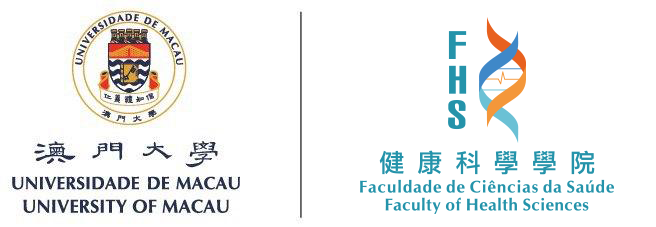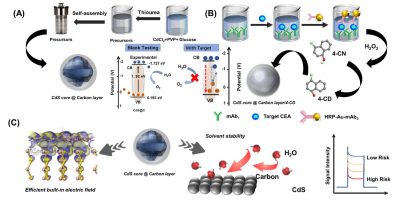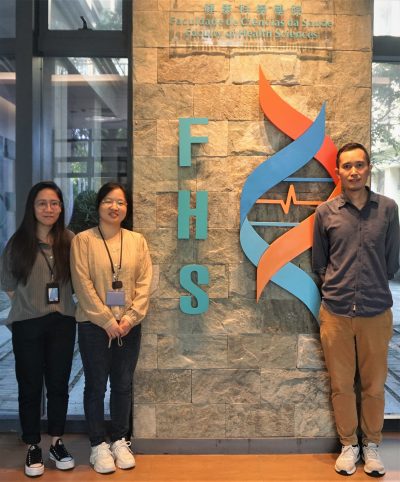A team led by Prof Henry, Hang Fai KWOK in the University of Macau (UM) Faculty of Health Sciences (FHS) has made significant progress in establishing a robust PEC immunoassay method to address the appearance of false reports due to signal fluctuations and is expected to be used to evaluate cancer-related markers in the field with rapidity and accuracy. The study has received considerable attention in the field of biosensor development and cancer diagnostics applications. The research results have been published in the internationally renowned journal Biosensors and Bioelectronics.
Biomarkers are things about cancer cells that make them different from normal cells. They can be measured in the tissue, blood or bodily fluid. In the clinic, biomarkers are often used to help choose the best precision treatment for cancer patients. This work reported a successful development of an ultra-sensitive and stable biosensing platform for the recovery of disease-related markers such as carcinoembryonic antigen (CEA) in low-abundance serum samples without additional expensive instrumentation support through a rationally constructed biocatalytic precipitation scheme with a stable photoanode system.
Experimental results from Prof Kwok’s team revealed that introducing the outer carbon layer on the inorganic photoactive materials caused the amplifying photocurrent by improving light harvesting and separating photo-generated e–/h+ pairs. Under optimum conditions, the split-type photoelectrochemical immunosensing platform displayed good photocurrent responses within the 0.01 – 80 ng mL-1 CEA dynamic range. It allowed the detection of CEA as low as a concentration of 3.6 pg mL-1 at the 3Sblank level. The strong attachment of antibodies onto nano label and high-performing photoanode resulted in good repeatability and intermediate precision down to 9.83%. No significant differences at the 0.05 significance level were encountered in analysing six human serum specimens between the developed PEC immunoassay and the commercially available CEA ELISA kits.
Notably, Prof Kwok and his team developed a PEC bioimmunosensing strategy that demonstrated the following distinct advantages: (1) the split immunoincubation and catalytic procedures reduced the interference to the electrode signal by reducing the confusion of the test environment; (2) the CdS@C photoanode system exhibited efficient photoelectric conversion efficiency and stability; and (3) the developed assay had clear stability and resistance to interference. The research team hopes that the established robust PEC immunoassay method addresses the appearance of false reports due to signal fluctuations and is expected to be used to evaluate cancer-related markers in the field with rapidity and accuracy.
Prof Kwok is the primary corresponding author of the study. Postdoctoral Fellow Libin GUO and PhD graduate Bin LI, share the co-first authorship. Others contributing to the study include PhD student Sin Wa WONG and former Postdoctoral Fellow Lilin GE. The project was supported by the Science and Technology Development Fund, Macao SAR (file number: 0027/2022/A1). The full version of the research study can be viewed at:
https://www.sciencedirect.com/science/article/pii/S0956566323003469



